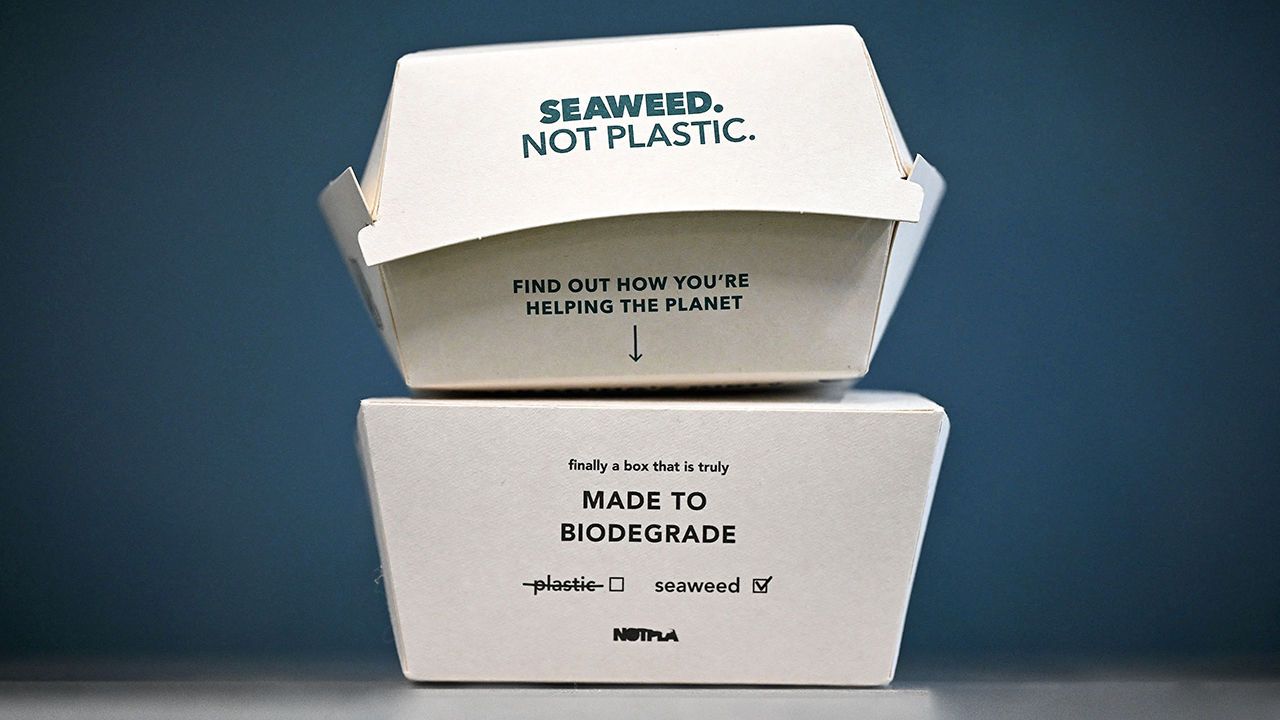- by Amy Yee
- 01 15, 2026
-

-
-
Loading

Loading

In Victorian LondonC&AIKEAOECDUNUNVCVC, among the factories and warehouses of the city’s East End, Alexander Parkes developed the world’s first plastic (he inventively called it Parkesine). Notpla, a startup now based in the same part of the city, wants to follow in his footsteps. Unlike Parkesine, however, its material is not made to last. And instead of fossil fuels, it is made from seaweed. At Emirates Stadium, not far away, football fans already gorge on hot dogs served on trays that use the material, which decomposes naturally in just six weeks.Notpla is one of a number of companies which are exploring using natural polymers—such as corn, mushrooms or agricultural waste—as alternatives to plastic. Traceless, a German startup, recently set up a factory to produce cutlery and other products that are compostable. , a European fashion retailer, uses biodegradable hooks made by the startup to hang socks. , a Swedish homewares giant, has experimented with mushroom-based packaging. As companies step up efforts to reduce their plastic waste, expect plenty more innovation in the years ahead.This year, according to the , the world will produce around 500m tonnes of plastic. About a tenth of that will be recycled and a fifth will be incinerated. The rest will end up in landfill or be dumped into waterways or oceans. The production and disposal of plastic accounts for about 3% of global greenhouse-gas emissions—more than from aviation. That is why on November 25th the began final negotiations on a binding global treaty that aims to curb the environmental impact of plastic by, among other things, setting rules around recycling. The treaty is expected to come into effect next year.For most companies, the main use of plastic is for packaging, which includes everything from bottles to protective wrapping. That accounts for a third of the material’s production, and much of it cannot be recycled. Many businesses have already begun taking steps to reduce this type of waste. Coca-Cola, for example, has swapped its green Sprite lemonade bottles for transparent ones (clear plastic is easier to recycle).Coca-Cola and other packaged-goods giants including Nestlé, Unilever and Danone are among the more than 250 companies that have joined a coalition supporting the treaty. Having a consistent set of global rules would make life easier for multinational companies that contend with a patchwork of national and regional regulations on plastic waste. Since July, for example, the European Union has mandated that caps must be attached to plastic bottles to ensure that they are also recycled. Because it would be too much hassle to do otherwise, most multinational companies have used the same design for bottles sold in Britain.Since 2018 the companies in the coalition, which together account for 20% of global packaging, have reduced their combined use of virgin plastic by 3%. That is commendable, but far short of the 18% target they had set for next year. Greater adoption of alternative packaging materials might help them pick up the pace. Nestlé is among those that are exploring such materials, having established a research centre for sustainable packaging in 2019. Entrepreneurs and venture-capital () investors have also piled in. Since 2020 firms have invested $2.7bn in sustainable-packaging startups, nearly three times the amount in the preceding five years, according to PitchBook, a data provider.Many of the alternative materials that are being explored remain expensive. Those seaweed-coated hot-dog trays cost about three to four times more than a plastic one. Companies will thus need to gauge how much shoppers are willing to pay to help reduce plastic waste. In a survey of consumers in Europe and the Americas conducted last year by Euromonitor, a research firm, more than four-fifths said they would pay a higher price for a product with sustainable packaging. One-third said they would pay at least 10% more. Whether such good intentions translate into behaviour in the shopping aisle is another matter. But some consumers, at least, do not want their money to go to waste.